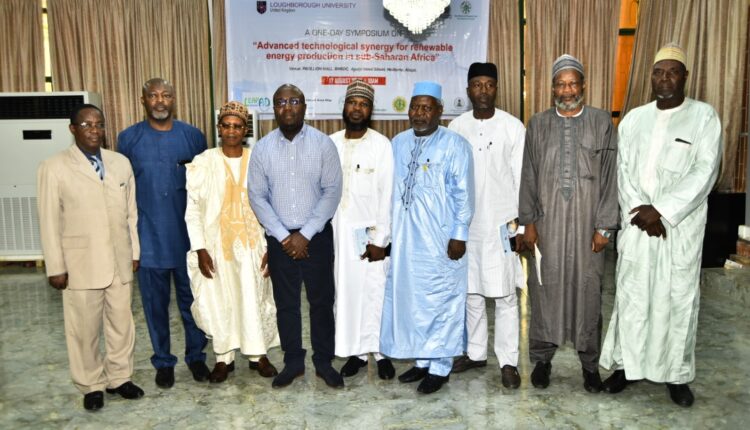Ahmadu Bello University (ABU), Zaria, Senegal’s Université Cheikh-Anta-Diop, and UK’s LEAP Micro AD Limited are now strong partners in the research on “advanced technological synergy for renewable energy production in sub-saharan Africa” led by Loughborough University, United Kingdom.
Solacebase reports that UK’s Royal Academy of Engineering (RAEng) had awarded a research fellowship to Loughborough University to spearhead the project focused on conducting development research and delivering outcomes that will positively impact and contribute to the sustainable economic and social development of developing countries.
This was contained in an invitation to some relevant government organisations by ABU Vice-Chancellor, Prof. Kabiru Bala, to join the research project, particularly during the pilot experimentation stages.
A statement issued by the University Director of Public Affair, Malam Auwalu Umar, on Thursday, said the research fellowship, as an innovative engineering solution, addresses the intertwined challenges of improper Agric-Food Wastes (AFW) management, domestic energy shortages, and lack of access to improved cooking solutions in an integrated way.
‘’The primary aim of the fellowship, according to the research collaboration document, was to develop a novel technological synergy between biological (Anaerobic digestion, AD) and thermochemical (hydrothermal carbonization, HTC) waste conversion processes to manage AFW and realize clean biofuels that are easily storable and transportable for end-use applications,’’ the statement said.

‘’The key program of work includes innovating a beneficial energy efficient pathway for synergizing AD-HTC technologies to improve net energy yield from AFW in the form of solid and gaseous biofuels.’’
‘’And, this will be followed by design and prototype development for pilot experimentation and full-scale investigation in Senegal and Nigeria.’’
‘’It is believed that realizing this project has the enormous benefits and transformational impacts on the economic development and social welfare improvement of the focus countries, and by extension to sub-saharan Africa.’’
According to the statement, a symposium was jointly organised in Abuja last month by Ahmadu Bello University and Loughborough University in conjunction with other key partner organisations to share the outcomes on the energy production potentials.
‘’This followed successful conduct of baseline studies, mapping and characterization of AFW streams in selected agric-food markets in Nigeria.’’
‘’The researchers and project partners are quite mindful of the fact that megacities in sub-saharan Africa are characterized by large agric-food markets and processing industries which generate enormous amount of avoidable and unavoidable agric-food wastes, which end up in open dumpsites, unsanitary landfills, or are incinerated in the open.’’
‘’Such wastes management practices bear significant greenhouse gas (GHG) emissions, environmental pollution and public health risks. Agric-good wastes are, however, rich in organic content, making them attractive for energy recovery purposes.’’
‘’At the Abuja symposium held at the Raw Materials Research and Development Council (RMRDC) last month, a lecturer and researcher at Loughborough University, UK, Dr. Shola Afolabi, who is the Principal Investigator for the project, called on the Nigerian government to start investing in technological waste management for the country to surmount its energy challenges as well as create awareness for waste to wealth.’’
‘’He said that the waste to energy was expected to be about $25 billion by 2025, noting that Nigeria having one of the largest dumpsites in the world could compete well with advanced nations in investing in waste to wealth technologies. ‘’
‘’The Vice-Chancellor, Ahmadu Bello University, Prof. Kabiru Bala, who chaired the symposium, explained that megacities in sub-saharan Africa were characterized by large organic-food markets and processing industries which generated enormous amount of avoidable and unavoidable agric-food wastes which end up in open dumpsites. ‘’
‘’Prof. Bala, represented by the Deputy Vice-Chancellor, Administration, Prof. Ahmed Doko Ibrahim, said that proffering technical solutions to tackle improper agric-food wastes management, domestic energy shortages and lack of access to improved cooking solutions in an integrated way had enormous benefits and transformational impacts on the economic development and social welfare improvement of Nigeria and sub-saharan Africa.’’



Comments are closed.